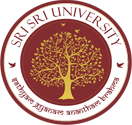pROGRAM HIGHLIGHTS
- INTRODUCTION
- COURSE FEATURES
- PROGRAM OUTCOMES
- The Department of Electrical Engineering at our esteemed institution takes pride in offering the Bachelor of Technology in Electrical Engineering with a groundbreaking specialization in Electrical Vehicles (EV), a program crafted in collaboration with the renowned industry leader L&T.
- Aligned with the transformative National Education Policy (NEP) and committed to addressing global challenges, this program stands at the forefront of sustainable technology and clean energy solutions. It is not only embodies the principles outlined in the NEP, focusing on holistic and multidisciplinary education but also aligns with the Sustainable Development Goals (SDGs).
- This program is designed to equip students with a profound understanding of electrical engineering principles, coupled with specialized knowledge in the domain of electric vehicles.
- With a focus on cutting-edge technologies and sustainable practices, the curriculum spans areas such as power systems, control systems, electric propulsion, battery technologies, and smart grid integration.
- As the demand for electric vehicles continues to rise globally, this program aims to prepare students for dynamic careers at the intersection of electrical engineering and green mobility.
Cutting-edge Curriculum:
Enrich your learning experience with a unique, world-class, and in-depth curriculum focusing on the intricacies of electrical engineering, with a specialized emphasis on electric vehicles. Stay at the forefront of the industry’s technological advancements.
Practical Learning Emphasis:
Immerse yourself in a hands-on educational journey with a strong emphasis on practical applications. Engage in projects, laboratories, and case studies that bridge theoretical knowledge with real-world scenarios, preparing you for the challenges of the industry.
Industry-Aligned Approach:
Experience a curriculum meticulously designed to align with industry needs. Benefit from continuous interaction with industry experts, ensuring that your education is not only academically rigorous but also relevant and tailored to the demands of the evolving electrical engineering landscape.
Innovative Learning Platform:
Explore the future of online education through our innovative ‘Industry-Academia Collaboration Framework.’ This futuristic online delivery platform is designed to foster collaboration, encouraging students to learn, collaborate, and discover in a dynamic virtual environment.
Global Competitions:
Showcase your skills on various platforms through active participation in intra-college, inter-college, and global competitions. Test your knowledge and innovation on a global stage, gaining exposure and recognition within the international community.
Engineering Knowledge:
Apply a profound understanding of mathematics, science, and engineering principles, specializing in electrical engineering and electric vehicles, to solve intricate engineering challenges.
Problem Analysis:
Identify, formulate, and critically analyze complex engineering problems, drawing insights from research literature and employing fundamental principles of mathematics and engineering sciences.
Design/Development of Solutions:
Devise innovative solutions for complex engineering problems, designing system components and processes with meticulous consideration for public health, safety, and environmental impact, along with an awareness of cultural and societal needs.
Conduct Investigations of Complex Problems:
Utilize research-based knowledge and methodologies, including experimental design, data analysis, and information synthesis, to draw valid conclusions and contribute to the advancement of engineering knowledge.
Modern Tool Usage:
Select and employ appropriate techniques, resources, and state-of-the-art engineering and IT tools, including predictive modeling, recognizing their limitations, in executing complex engineering activities.
Engineer and Society:
Apply contextual knowledge to assess societal, health, safety, legal, and cultural aspects, recognizing the responsibilities associated with professional engineering practice.
Environment and Sustainability:
Understand the broader impact of engineering solutions on society and the environment, demonstrating knowledge and commitment to sustainable development practices.
Ethics:
Apply ethical principles, demonstrating commitment to professional ethics and responsibilities integral to the practice of engineering.
Individual and Team Work:
Function effectively both individually and within diverse teams, showcasing leadership capabilities in multidisciplinary settings.
Communication:
Communicate complex engineering concepts effectively with the engineering community and broader society, exhibiting proficiency in report writing, design documentation, presentations, and instructional communication.
Project Management and Finance:
Demonstrate comprehensive knowledge of engineering and management principles, applying them as a team member or leader to manage projects effectively in multidisciplinary environments.
Life-long Learning:
Recognize the imperative for ongoing learning in the face of technological change, equipped with the preparation and ability to engage in independent and life-long learning endeavors.
COURSE DETAILS
COURSE FACT SHEET
45% In PCM at +2 Sc Level /
45% in total at +2 Sc level with rank in SSU CET /JEE (Main) / OJEE/
Any other State Level & National Entrance Test
ELIGIBILITY
(For ADMISSION)
08 SEMESTER
(04 YEARS FULL TIME)
INR 80,000
(TUITION FEE PER SEMESTER**)
What People Say About Us

Vandana Shiva, Social Activist
Author
This is a University for the future where everyone has a right share of economic, spiritual and social well-being. am so impressed by this campus because it isn't a clone of what is being taught everywhere else. It is connecting the ancient values to the needs of the present.

Dr. Vijay, Professor
University of Hyderabad
I am quite impressed with facilities, cordial staff and highly talented faculty members here. They have very unique programs. I am qu campus infrastructure and Integrated programs they are running right now. wish them luck for the Ayurveda hospital!

Vinish Kasturia
Mathematics Professor, IIT
I found the campus quite beautiful and serene. Around here, it is a different kind of experience. It is away from hustle and bustle of city near Cuttack and Bhubaneswar. If you want to do meditation or spend some time to do some serious work like writing, thinking, contemplating, this is a wonderful place.
Ms. Anja Jessurun Director Shankara
Health And Wellness By Ayurveda Netherlands, Europe
We needed more experienced people from India. Therefore, we visited Sri Sri University. After my visit I was very impressed by the total i.e. the location. the knowledge and the atmosphere. I met 10 students and they pitched their ideas to me, which they did really well. I was really impressed by the management and the things they said which I was recollecting all my way back and which will remain with me all my life.

Mr. Sourabh Sharma Manager
Supply Chain Maruti Suzuki India Ltd
Mr. Kishan is a work dedicated guy who quickly understood what the expectations were from the project & put all efforts to achieve the same. He was punctual throughout the SIP. The most important thing is, even not being from engineering background, he grasped the project so quickly and delivered very well. This speaks of his dedication and commitment for the work.
Applications for 2024 Open

